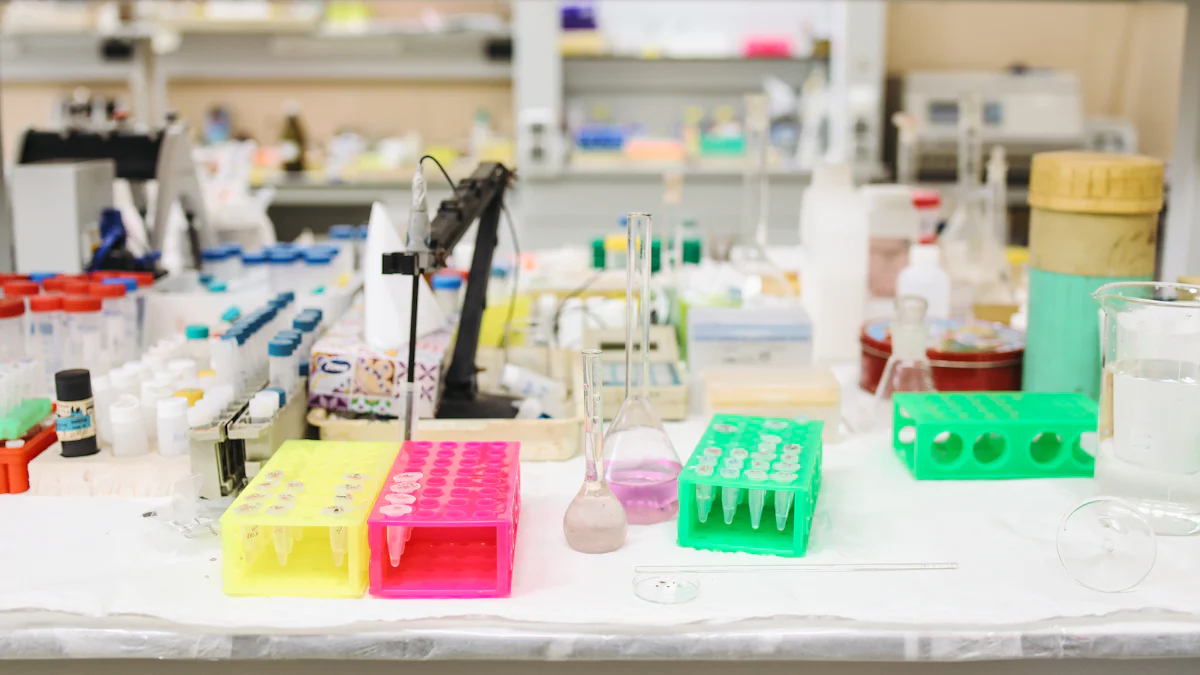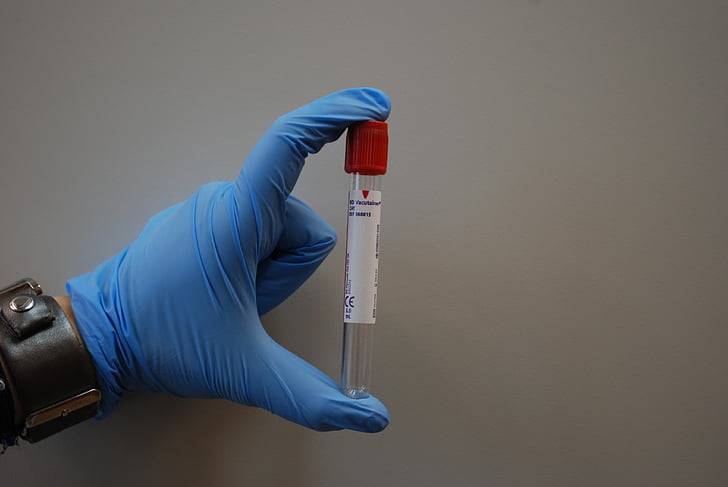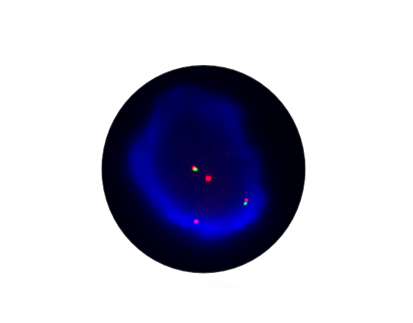Unveiling the Power of Molecular Diagnostics: A Comprehensive Guide

By admin
Exploring the Basics of Molecular Diagnostics
Molecular diagnostics is a cutting-edge field that plays a pivotal role in modern medicine. It involves analyzing DNA and RNA to uncover valuable insights into genetic information, diseases, and personalized treatments. The global molecular diagnostics market has experienced substantial growth, with a projected value of USD 61.29 billion by 2033 at a CAGR of 3.8% from 2024 to 2033.
What is Molecular Diagnostics?
Definition and Overview
Molecular diagnostics encompasses techniques used to analyze biological markers in the genome and proteome. This enables healthcare professionals to diagnose and monitor diseases, predict patient responses to therapies, and assess disease risk.
Importance in Modern Medicine
The significance of molecular diagnostics in modern medicine cannot be overstated. It provides a deeper understanding of diseases at the genetic level, leading to more accurate diagnoses and tailored treatment plans. Moreover, it has revolutionized disease management by enabling early detection and intervention.
How Molecular Diagnostics Works
The Role of DNA and RNA
DNA and RNA serve as the primary targets for molecular diagnostic tests. By examining tissue samples for specific genetic material, these tests provide crucial insights into an individual’s health status.
Key Techniques: PCR and Beyond
Polymerase Chain Reaction (PCR) stands as one of the most fundamental techniques in molecular diagnostics. It allows for the amplification of minuscule DNA sequences that were previously undetectable, ushering in a new era in molecular diagnostics. PCR’s remarkable sensitivity has been instrumental in exploring mutations and diagnosing various diseases.
List:
- PCR techniques are essential elements in today’s scientific arsenal.
- PCR enables reliable diagnosis and monitoring of diseases even with minimal sample amounts.
- The use of PCR technology to detect infectious or genetic diseases is expected to drive market growth.
The Science Behind Molecular Diagnostics
Molecular diagnostics is a rapidly evolving field that encompasses a complex endeavor, with multiple regulatory pathways to consider and numerous approaches to development and commercialization. It plays a pivotal role in investigating human, viral, and microbial genomes and the products they encode. The molecular laboratory performs molecular diagnostic testing for nucleic acid targets in patient samples. Due to the incredible sensitivity and specificity associated with the use of molecular assays, molecular laboratories have the capability to more rapidly and accurately identify pathogens than laboratories that use more conventional methods.
Introduce the company Celnovte Biotech
Celnovte Biotech, a high-tech enterprise established in 2010, is a leading company specializing in the research, development, production, and sales of precision diagnostic instruments and reagents for tumors. The company’s primary focus is on early screening, precise diagnosis, drug companionship, and treatment monitoring of tumors.
In terms of product offerings, Celnovte Biotech provides a comprehensive solution for immunohistochemistry. The company has mastered the core research and development technology in this field, offering over 460 primary antibodies, independently developed secondary antibody detection systems, more than 200 immunohistochemistry quality control products, and fully automated staining platforms. These products ensure customers receive high-quality staining results.
The Process of Molecular Testing
Collecting and Preparing Samples
The process of molecular testing begins with the collection and preparation of samples from patients. These samples can include tissue or fluid containing molecules such as proteins, DNA, and RNA. The meticulous handling and preparation of these samples are crucial to ensure accurate results in subsequent testing.
Amplifying Genetic Material
One of the key steps in molecular diagnostics is amplifying genetic material for analysis. Techniques such as Polymerase Chain Reaction (PCR) are utilized to amplify specific DNA sequences present in the collected samples. This amplification process allows for the detection of even minuscule amounts of genetic material, enabling precise analysis.
Understanding the Results
Interpreting Genetic Information
Once the genetic material has been amplified, it undergoes thorough analysis to interpret the genetic information it contains. This involves identifying patterns and alterations in DNA and RNA sequences that provide valuable insights into prognosis, therapeutic monitoring, and diagnosis for human healthcare.
The Accuracy and Reliability of Tests
Molecular diagnostic tests offer unparalleled accuracy and reliability due to their ability to detect specific genetic markers associated with various diseases. With their high sensitivity, these tests enable healthcare providers to make informed decisions regarding disease management based on precise genetic information.
The development of molecular diagnostics has led to a comprehensive understanding of diseases at the genetic level, transforming healthcare by enabling early detection, personalized treatments, and improved patient care outcomes.
Real-World Applications of Molecular Diagnostics
Molecular diagnostics plays a pivotal role in diagnosing diseases and personalizing medicine, enabling tailored treatment plans, minimizing adverse reactions, and optimizing therapeutic outcomes. By leveraging the power of genetic information, molecular diagnostics has transformed healthcare by providing valuable insights into infectious diseases, genetic disorders, personalized treatments, and disease progression monitoring.
Diagnosing Diseases
Infectious Diseases
Molecular diagnostics has revolutionized the diagnosis of infectious diseases by enabling rapid and accurate identification of pathogens. This is particularly crucial in the context of emerging infectious diseases or outbreaks such as COVID-19. The ability to detect specific genetic material from pathogens allows for early intervention and containment measures to be implemented swiftly, thereby preventing further spread within communities.
Case Studies:
- Revolutionizing Disease Diagnosis: Molecular diagnostics have been instrumental in revolutionizing disease diagnosis during the COVID-19 outbreak. By identifying specific genetic markers associated with the virus, healthcare providers were able to swiftly diagnose and monitor infected individuals, leading to more effective containment strategies.
Genetic Disorders
In the realm of genetic disorders, molecular diagnostics has paved the way for precise and early detection. By analyzing DNA sequences for mutations or variations associated with genetic conditions, healthcare professionals can provide accurate diagnoses and offer tailored management plans. This empowers patients with timely interventions and access to appropriate support services.
Personalized Medicine
Tailoring Treatments to Genetic Profiles
Molecular diagnostics enables healthcare providers to tailor treatments based on an individual’s unique genetic profile. By identifying specific genetic markers associated with drug metabolism or treatment response, personalized medicine can optimize therapeutic outcomes while minimizing adverse reactions. This approach holds immense promise for enhancing patient care across various medical specialties.
Monitoring Disease Progression
Furthermore, molecular diagnostics plays a crucial role in monitoring disease progression over time. By regularly analyzing genetic information related to disease activity or treatment response, healthcare providers can make informed decisions regarding adjustments to treatment plans or interventions. This proactive approach contributes to better disease management and improved patient outcomes.
The Future of Molecular Diagnostics
Advances in Technology
As the field of molecular diagnostics continues to evolve, significant advancements in technology are shaping the future landscape of healthcare. Two key areas driving this progress are Next-Generation Sequencing (NGS) and CRISPR-based gene editing.
Next-Generation Sequencing
Next-Generation Sequencing (NGS) represents a revolutionary approach to DNA sequencing, enabling the rapid analysis of entire genomes with unprecedented speed and cost-effectiveness. This transformative technology has far-reaching implications across various domains, including clinical diagnostics, biomedical research, and personalized medicine.
More information:
- NGS offers a comprehensive view of an individual’s genetic makeup, allowing for the identification of disease-causing mutations and variations.
- The high-throughput nature of NGS enables the simultaneous analysis of multiple genes or genomic regions, accelerating the pace of genetic testing and research.
- NGS has become an indispensable tool in oncology, facilitating the identification of actionable mutations that inform targeted cancer therapies.
CRISPR and Gene Editing
CRISPR-based gene editing has emerged as a groundbreaking technology with profound implications for molecular diagnostics and therapeutic interventions. This innovative approach allows for precise modifications to DNA sequences, offering unprecedented potential for treating genetic disorders and advancing our understanding of disease mechanisms.
More information:
- CRISPR technology provides a versatile platform for targeted genome editing, enabling the correction of disease-causing mutations at the molecular level.
- The application of CRISPR in diagnostics holds promise for detecting specific genetic markers associated with diseases with unparalleled precision.
- The ability to edit genetic sequences using CRISPR has opened new frontiers in developing novel therapeutic strategies for previously incurable genetic conditions.
Challenges and Opportunities
While technological advancements present promising opportunities for enhancing healthcare through molecular diagnostics, they also bring forth ethical considerations and challenges related to equitable access to care.
Ethical Considerations
The growing capabilities of molecular diagnostics raise ethical concerns regarding privacy, consent, and the potential misuse of genetic information. Safeguarding patient data and ensuring informed consent are paramount as these technologies continue to advance.
More information:
- Ethical frameworks must be established to govern the responsible use of genetic information obtained through molecular diagnostics.
- Balancing individual privacy rights with the societal benefits derived from genetic insights poses complex ethical dilemmas that require careful consideration.
- Ensuring transparency in how genetic data is utilized is essential for upholding ethical standards in molecular diagnostics.
Expanding Access to Care
Expanding access to advanced molecular diagnostic technologies is essential for promoting equitable healthcare delivery. Addressing disparities in access requires concerted efforts to make these cutting-edge tools available across diverse healthcare settings.
More information:
- Enhancing infrastructure for molecular diagnostic testing in underserved communities is crucial for reducing disparities in healthcare access.
- Collaborative initiatives involving public health agencies, private sector partners, and academic institutions can facilitate knowledge sharing and capacity building.
- Investing in training programs for healthcare professionals on integrating molecular diagnostics into clinical practice can enhance diagnostic capabilities across diverse care settings.
Final Thoughts
The Impact of Molecular Diagnostics
Transforming Healthcare
The advent of molecular diagnostics has ushered in a new era of healthcare, revolutionizing the way diseases are diagnosed, treated, and managed. By delving into the genetic underpinnings of various conditions, molecular diagnostics has empowered healthcare professionals to make more precise and personalized decisions regarding patient care. This transformative impact extends across diverse medical specialties, from oncology to infectious diseases, offering unprecedented insights that shape the future of healthcare delivery.
Philosophical or Ethical Arguments:
- The development of genetic testing has raised numerous concerns about autonomy, confidentiality, privacy, and equity. The types of genetic conditions or predispositions that can potentially be tested for are much broader than those signaling serious, imminent diseases. These include characteristics (such as sex or height) that are not diseases, potential susceptibility to diseases if the person comes into contact with particular environmental stimuli, and indications that a currently asymptomatic person will suffer later in life from a debilitating disease.
Molecular diagnostics not only enables early detection but also facilitates tailored treatment plans based on an individual’s unique genetic profile. This personalized approach holds immense promise for optimizing therapeutic outcomes while minimizing adverse reactions. As molecular diagnostics continues to advance, it is poised to redefine the standard of care by integrating genetic insights into routine clinical practice.
Empowering Patients and Providers
Furthermore, molecular diagnostics empowers patients by providing them with a deeper understanding of their health at the genetic level. By unraveling genetic predispositions and disease risks, individuals can take proactive measures to mitigate potential health challenges and make informed decisions about their well-being. Moreover, healthcare providers are equipped with valuable tools to deliver patient-centered care through personalized treatment regimens tailored to each patient’s genetic makeup.
In conclusion, molecular diagnostics represents a paradigm shift in healthcare by harnessing the power of genetics to drive precision medicine initiatives. As technology continues to evolve and ethical considerations are carefully navigated, molecular diagnostics holds tremendous potential for shaping a future where healthcare is truly personalized and preventive measures are optimized based on individual genetic insights.
This marks just the beginning of an era where molecular diagnostics plays an integral role in transforming healthcare delivery worldwide.










